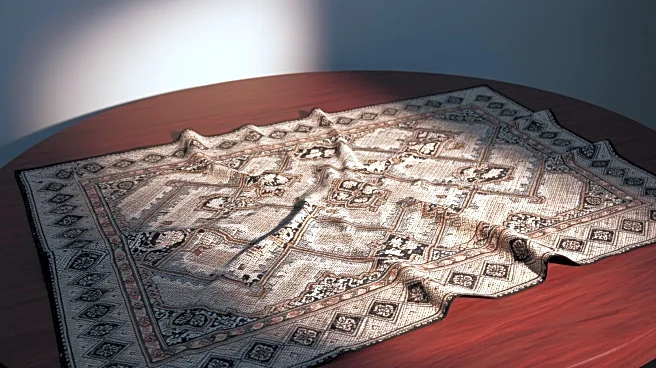What's Happening?
Tapestry Inc., the parent company of Coach and Kate Spade, has announced a profit outlook that falls short of analysts' expectations, primarily due to the impact of tariffs. The company projects earnings per diluted share between $5.30 to $5.45 for the current fiscal year, which is below the anticipated $5.49 forecasted by analysts. This discrepancy is attributed to an estimated $160 million in additional costs from tariffs, which have negatively impacted the earnings per share by 60 cents. Despite these challenges, Tapestry remains optimistic about mitigating the tariff impact over time. The company is also focusing on increasing sales at Coach and revitalizing the Kate Spade brand, following the sale of Stuart Weitzman, which did not generate significant revenue.
Why It's Important?
The tariff costs present a significant challenge for Tapestry, affecting its profitability and market performance. This situation highlights the broader impact of trade policies on U.S. companies, particularly in the luxury goods sector. As tariffs increase operational costs, companies like Tapestry must navigate these financial pressures while maintaining competitive pricing and brand appeal. The ability to mitigate these costs is crucial for sustaining growth and market share, especially as consumer confidence fluctuates. The company's strategy to focus on its core brands, Coach and Kate Spade, reflects a tactical shift to strengthen its market position amidst these economic challenges.
What's Next?
Tapestry plans to focus on enhancing sales at Coach and repositioning the Kate Spade brand to counteract the financial impact of tariffs. The company aims to leverage its strong brand presence and competitive pricing to maintain market share and drive revenue growth. As the fiscal year progresses, Tapestry will likely continue to assess and adjust its strategies to mitigate tariff costs and optimize its brand portfolio. Stakeholders, including investors and industry analysts, will be closely monitoring Tapestry's performance and strategic decisions in response to these economic pressures.
Beyond the Headlines
The tariff issue faced by Tapestry underscores the complexities of global trade and its direct impact on U.S. businesses. It raises questions about the sustainability of luxury brands in a fluctuating economic environment and the need for strategic adaptability. The company's focus on Coach and Kate Spade suggests a prioritization of brands with strong consumer loyalty and market potential, which could influence long-term industry trends in brand management and consumer engagement.









